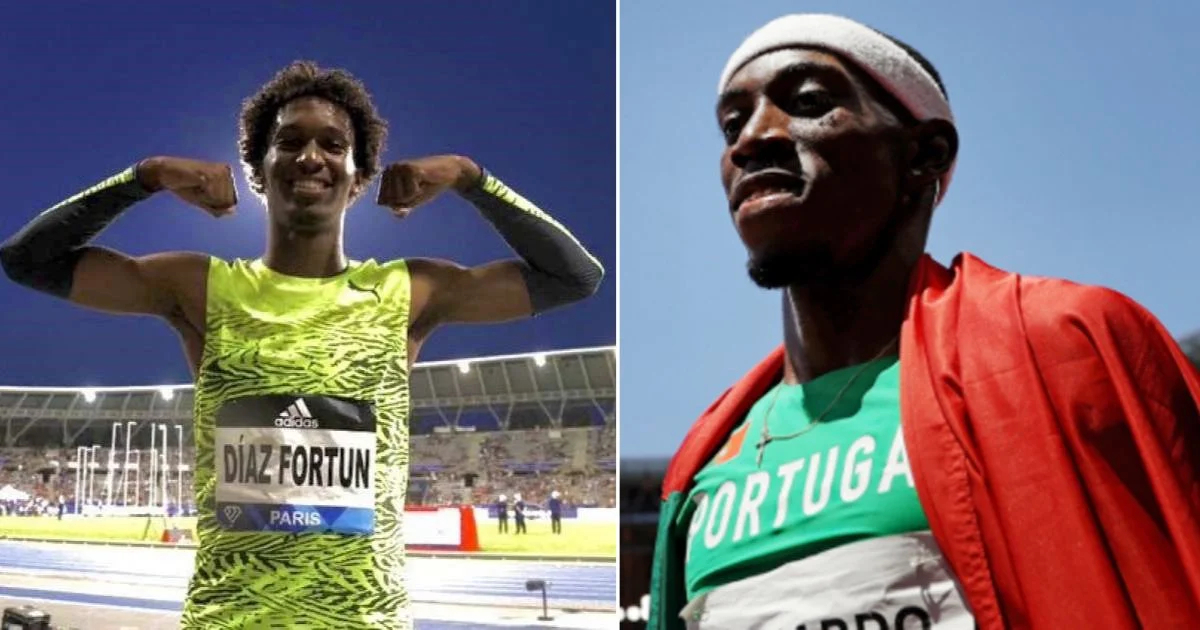Four Cuban athletes advanced to the men's triple jump final at the Paris 2024 Olympics on Wednesday, with standout performances from favorites Pedro Pablo Pichardo and Jordan Díaz, representing Portugal and Spain, respectively. Pichardo, the reigning Olympic champion, and Díaz, the recent European champion, only needed one attempt to meet the organizers' qualifying mark of 17.10 meters, with jumps of 17.44 meters and 17.24 meters, respectively.
Lázaro Martínez and Andy Díaz, the latter competing for Italy, both jumped 16.79 meters and failed to meet the qualifying mark. However, they managed to secure the 11th and 12th spots, respectively, to advance to the medal round. Unfortunately, the other two Cuban representatives, Cristian Nápoles (16.67 meters) and Andy Echevarría (16.70 meters), were eliminated after lackluster performances.
With this, the stage is set for one of the most anticipated events in athletics, as Pedro Pablo Pichardo and Jordan Díaz already clashed during the European Championships held in June. The young Díaz, only 23 years old, achieved an impressive 18.18 meters to claim the gold medal, setting Spanish and continental records, and achieving the third-best mark of all time, just 11 centimeters shy of the world record held by Britain's Jonathan Edwards.
Controversy Surrounds Díaz's Record Jump
The competition was fiercely contested, as the Portuguese athlete marked 18.04 meters to take the silver medal. However, controversy arose when Pichardo publicly questioned the validity of Díaz's jump. In an extensive Instagram post, Pichardo expressed doubts about Díaz's jump, asking, "Why did the electronic gauge turn off at that moment? How do we know it was really 18.18 meters?"
The Olympic and world champion requested that European Athletics, World Athletics, and the responsible judges provide a swift response and clarification regarding what happened in the pit when the Spanish athlete made that remarkable jump. Pichardo continued, "In a competition of that level, it is not normal to make a great mark with the electronic gauge turned off."
He also noted that his rival celebrated "without even realizing where he had landed since the gauge was already off, but it seems he knew he had surpassed me even before the measurement and without the electronic gauge being on."
Pichardo's actions have sparked further controversy among athletes trained in Cuba's renowned jumping school, adding more fuel to the rivalry in the men's triple jump at Paris 2024.
Key Questions About the Men's Triple Jump Controversy
The recent developments in the men's triple jump have raised several questions among fans and experts. Here are some key points to consider:
What was the controversy surrounding Jordan Díaz's jump?
Pedro Pablo Pichardo questioned the validity of Díaz's 18.18-meter jump, noting that the electronic gauge was turned off at the time. He requested clarification from European Athletics and World Athletics.
How did Pedro Pablo Pichardo and Jordan Díaz qualify for the final?
Both athletes met the qualifying mark of 17.10 meters in their first attempts, with Pichardo jumping 17.44 meters and Díaz jumping 17.24 meters.
Which Cuban athletes failed to advance to the final?
Cristian Nápoles and Andy Echevarría did not advance to the final after jumping 16.67 meters and 16.70 meters, respectively.
